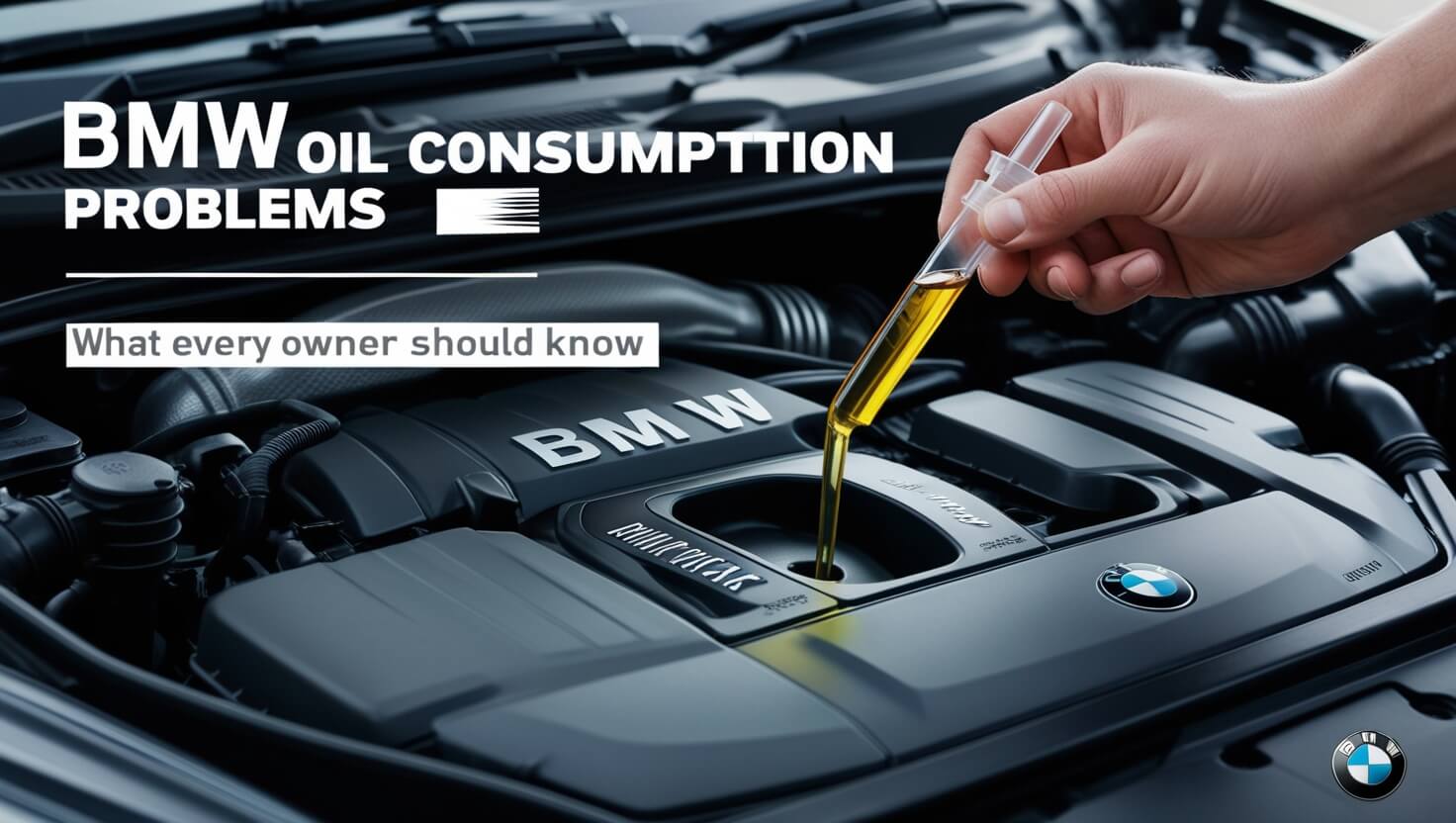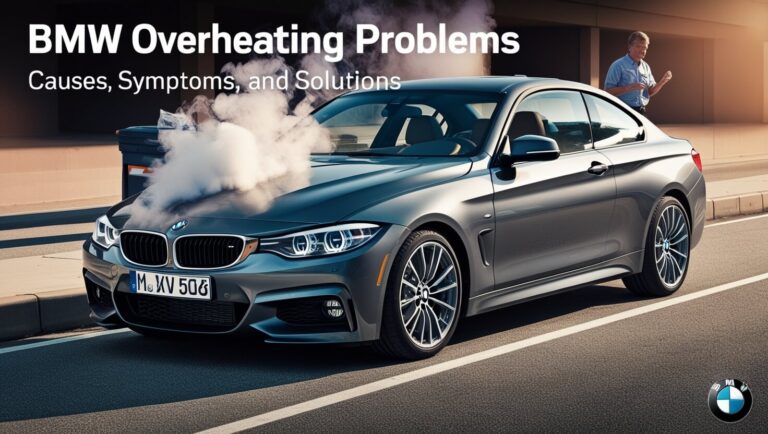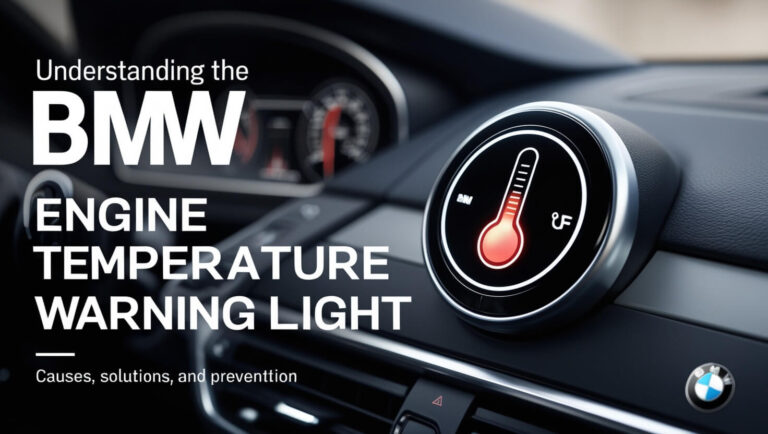
Are you noticing your BMW’s oil levels dropping faster than usual? You’re not alone. Many BMW owners face oil consumption problems, with some models burning through oil at an alarming rate. This issue can lead to engine damage if left unchecked, making it crucial for BMW enthusiasts to understand and address.
In this comprehensive guide, we’ll explore the ins and outs of BMW oil consumption problems. We’ll cover everything from identifying the issue to finding solutions and preventing future problems. Whether you’re a long-time BMW owner or considering your first Beemer purchase, this information will help you keep your ultimate driving machine running smoothly.
Understanding BMW Oil Consumption
Before diving into the problems, let’s clarify what normal oil consumption looks like for a BMW.
What is normal oil consumption?
BMW, like many automakers, considers some oil consumption normal. According to BMW guidelines, acceptable oil consumption can range from 0.7 liters per 1000 kilometers for non-M engines to 1.5 liters per 1000 kilometers for M engines. That’s about a quart of oil every 600 to 1,300 miles, depending on the model.
But here’s the catch: many BMW owners report much higher consumption rates. So when does “normal” become a problem?
Signs of excessive oil consumption in BMWs
Watch out for these red flags:
- Oil level warnings on your dashboard
- Needing to add oil between scheduled changes
- Blue smoke from the exhaust
- Burning smell while driving
- Decreased fuel efficiency
If you’re experiencing any of these symptoms, your BMW might be guzzling oil faster than it should.
Common Causes of BMW Oil Consumption Issues
Several factors can contribute to excessive oil use in BMWs. Let’s break them down.
Worn piston rings and their impact
Piston rings play a crucial role in sealing the combustion chamber. When they wear out, oil can seep past and burn in the engine. This not only increases oil consumption but can also lead to carbon buildup and reduced engine performance.
Faulty PCV system explained
The Positive Crankcase Ventilation (PCV) system helps regulate pressure in the engine. A malfunctioning PCV valve can cause oil to be sucked into the combustion chamber, leading to increased consumption and potential engine damage.
The role of damaged seals and gaskets
Leaky seals and gaskets, especially around the valve cover or crankshaft, can cause oil to escape. While this might not always result in visible leaks, it can contribute to steadily declining oil levels.
How low-quality oil affects consumption
Using the wrong type of oil or low-quality oil can accelerate consumption. BMWs are precision machines that require specific oil grades to function optimally. Cutting corners here can cost you in the long run.
BMW Models Prone to Oil Consumption Problems
While any car can develop oil consumption issues, some BMW models seem more susceptible than others.
Identifying high-risk BMW engines
The N42 and N46 engines, found in many BMWs manufactured between 2002 and 2011, are particularly notorious for oil consumption problems. These engines often suffer from issues with valve stem seals, leading to increased oil use over time.
Years and models most affected
Models that frequently show up in discussions about oil consumption include:
- 3 Series (E46, E90)
- 5 Series (E60)
- X3 (E83)
- X5 (E70)
However, it’s important to note that not all vehicles of these models will necessarily have problems. Proper maintenance and driving habits play a significant role in engine health.
Diagnosing BMW Oil Consumption Issues
Catching oil consumption problems early can save you from costly repairs down the road. Here’s how to stay on top of the issue.
DIY checks for oil consumption
- Regular oil level checks: Make it a habit to check your oil level every time you fill up with gas.
- Keep a log: Track how much oil you’re adding between changes to spot trends.
- Look for smoke: Blue smoke from the exhaust, especially on startup, can indicate oil burning in the engine.
- Monitor performance: Pay attention to any changes in fuel efficiency or engine power.
When to seek professional diagnosis
If you’re consistently adding oil between scheduled changes or notice any of the symptoms we’ve discussed, it’s time to consult a professional. A qualified BMW technician can perform more in-depth diagnostics, including:
- Compression tests
- Leak-down tests
- PCV system inspections
- Oil consumption tests
These tests can pinpoint the exact cause of your BMW’s oil thirst, allowing for targeted repairs.
Solutions for BMW Oil Consumption Problems
Once you’ve identified the problem, it’s time to fix it. Solutions range from simple maintenance to major repairs.
Addressing minor oil consumption issues
For less severe cases, try these steps:
- Switch to a higher quality oil recommended by BMW
- Replace the PCV valve
- Use oil additives designed to reduce consumption (with caution and professional advice)
- Adjust driving habits to reduce engine stress
Major repairs for severe cases
If simple fixes don’t cut it, you might be looking at more significant repairs:
- Replacing piston rings
- Repairing or replacing the cylinder head
- Rebuilding the engine
These repairs can be costly, but they’re often necessary to restore your BMW’s performance and longevity.
The importance of proper maintenance
Regular maintenance is key to preventing and addressing oil consumption issues:
- Stick to BMW’s recommended oil change intervals
- Use only BMW-approved oils
- Replace air and oil filters as scheduled
- Address small issues before they become big problems
Preventing Excessive Oil Consumption in BMWs
An ounce of prevention is worth a pound of cure, especially when it comes to BMWs.
Best practices for BMW owners
- Warm up your engine properly before driving hard
- Avoid extended periods of idling
- Don’t overrev the engine, especially when it’s cold
- Follow the break-in period recommendations for new BMWs
Choosing the right oil for your BMW
BMW engines are designed with specific oil requirements in mind. Using the wrong oil can lead to increased consumption and engine wear. Always use:
- The viscosity grade recommended for your model
- Synthetic oils meeting BMW’s Longlife-01 or Longlife-04 specifications
- Oils from reputable brands known for quality
The Impact of Oil Consumption on BMW Performance
Excessive oil consumption isn’t just a nuisance; it can significantly affect your BMW’s performance and lifespan.
How excessive oil use affects engine health
- Increased wear on engine components
- Reduced fuel efficiency
- Loss of power and acceleration
- Higher emissions
- Risk of catalytic converter damage
Long-term consequences of ignoring the problem
Ignoring oil consumption issues can lead to:
- Complete engine failure
- Costly repairs or engine replacement
- Decreased resale value
- Potential safety issues
Don’t let a small problem turn into a major headache. Address oil consumption issues promptly to keep your BMW running at its best.
BMW’s Stance on Oil Consumption
Understanding BMW’s official position on oil consumption can help you navigate potential warranty claims and repairs.
Official BMW guidelines on oil use
BMW acknowledges that some oil consumption is normal. Their official stance is:
- Up to 1 quart per 750 miles (1 liter per 1,500 km) for cars with less than 50,000 miles
- Up to 1 quart per 550 miles (1 liter per 1,000 km) for cars with over 50,000 miles
However, many owners find these guidelines too lenient.
Warranty coverage for oil consumption issues
BMW’s warranty typically covers oil consumption problems if:
- The consumption exceeds their stated guidelines
- The vehicle is still within the warranty period
- There’s no evidence of owner neglect or misuse
Always document your oil consumption and maintenance history to support potential warranty claims.
FAQs About BMW Oil Consumption Problems
Let’s address some common questions BMW owners have about oil consumption:
- Q: Is it normal for my new BMW to consume oil? A: Some oil consumption is normal, even in new BMWs. However, it shouldn’t exceed BMW’s guidelines.
- Q: Can changing driving habits reduce oil consumption? A: Yes, avoiding aggressive driving and giving your engine time to warm up can help reduce oil consumption.
- Q: Will using synthetic oil solve my consumption problem? A: While synthetic oil can help, it’s not a cure-all. If your BMW has mechanical issues causing high consumption, switching oil types alone won’t fix the problem.
- Q: How often should I check my BMW’s oil level? A: It’s a good idea to check your oil level at least once a month or every 1,000 miles, whichever comes first.
- Q: Can cold weather affect oil consumption? A: Yes, cold weather can increase oil consumption temporarily as the engine takes longer to reach optimal operating temperature.
Conclusion: Tackling BMW Oil Consumption Issues Head-On
BMW oil consumption problems can be frustrating, but they’re not insurmountable. By staying informed, performing regular maintenance, and addressing issues promptly, you can keep your BMW running smoothly for years to come.
Remember, your BMW is a precision machine. It deserves high-quality care and attention. Don’t hesitate to consult with BMW specialists if you’re concerned about oil consumption. With the right approach, you can enjoy the ultimate driving experience without worrying about your engine’s thirst for oil.
Keep an eye on those oil levels, use the right products, and listen to your car. Your BMW will thank you with miles of trouble-free performance. Happy driving!






